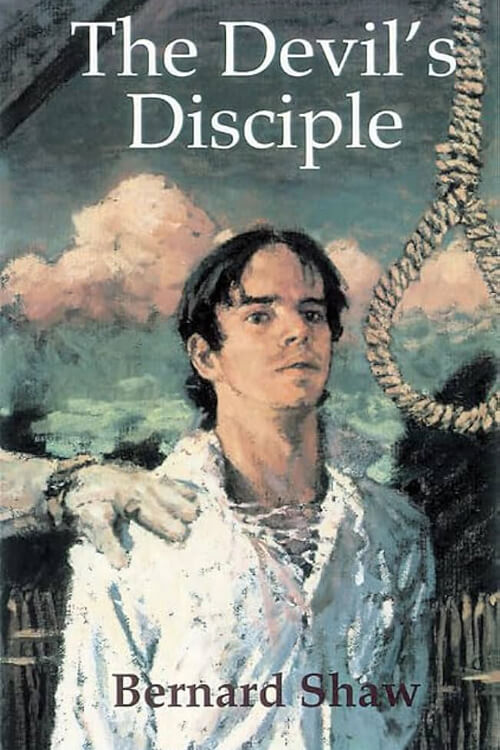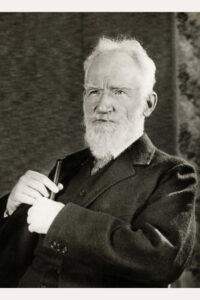
The Devil’s Disciple
On the side opposite the fireplace, between the door and the corner, a shamelessly ugly black horsehair sofa stands against the wall. An inspection of its stridulous surface shows that Mrs. Dudgeon is not alone. A girl of sixteen or seventeen has fallen asleep on it.
She is a wild, timid-looking creature with black hair and tanned skin. Her dress, a scanty garment, is rent, weather-stained, berry-stained, and by no means scrupulously clean. It hangs on her with a freedom which, taken with her brown legs and bare feet, suggests no outstanding stock of underclothing.
Read or download Book
George Bernard Shaw
George Bernard Shaw (26 July 1856 – 2 November 1950), known at his insistence as Bernard Shaw, was an Irish playwright, critic, polemicist and political activist.
Biography.
His influence on Western theatre, culture, and politics extended from the 1880s to his death and beyond. He wrote more than sixty plays, including major works such as Man and Superman (1902), Pygmalion (1913), and Saint Joan (1923). With a range incorporating both contemporary satire and historical allegory, Shaw became the leading dramatist of his generation and was awarded the Nobel Prize in Literature in 1925.
Born in Dublin, Shaw moved to London in 1876, where he struggled to establish himself as a writer and novelist and embarked on a rigorous process of self-education. By the mid-1880s, he had become a respected theatre and music critic. Following a political awakening, he joined the gradualist Fabian Society and became its most prominent pamphleteer. Shaw had written plays for years before his first public success, Arms and the Man, in 1894. Influenced by Henrik Ibsen, he sought to introduce a new realism into English-language drama, using his plays to disseminate his political, social and religious ideas. By the early twentieth century, his reputation as a dramatist was secured with a series of critical and popular successes, including Major Barbara, The Doctor’s Dilemma, and Caesar and Cleopatra.
Shaw’s views were often contentious; he promoted eugenics and alphabet reform and opposed vaccination and organised religion. He courted unpopularity by denouncing both sides in the First World War as equally culpable and, although not a Republican, criticized British policy on Ireland in the postwar period. These stances had no lasting effect on his standing or productivity as a dramatist; the inter-war years saw a series of often ambitious plays which achieved varying degrees of popular success. In 1938, he provided the screenplay for a filmed version of Pygmalion, for which he received an Academy Award. His appetite for politics and controversy remained undiminished; by the late 1920s, he had renounced mainly Fabian Society gradualism and often wrote and spoke favourably of the right and left dictatorships—he expressed admiration for both Mussolini and Stalin. In the final decade of his life, he made fewer public statements. Still, he wrote prolifically until shortly before his death, aged ninety-four, having refused all-state honours, including the Order of Merit in 1946.
Since Shaw’s death, scholarly and critical opinions about his works have varied. However, British dramatists have regularly rated him as second only to Shakespeare; analysts recognise his extensive influence on generations of English-language playwrights. The word Shavian has entered the language as encapsulating Shaw’s ideas and his means of expressing them.






